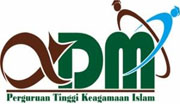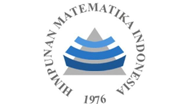Integration of ARIMA Models and Machine Learning for Academic Data Forecasting: A Case Study in Applied Mathematics
Abstract
Keywords
Full Text:
PDFReferences
Siregar, R. (2020). Penerapan Matematika dalam Dunia Nyata: Teori dan Praktik di Pendidikan Tinggi. Jakarta: Pustaka Edukasi.
Lee, J. E., & Recker, M. (2022). Predicting student performance by modeling participation in asynchronous discussions in university online introductory mathematical courses. Educational Technology Research and Development, 70(6), 1993-2015. https://doi.org/10.1007/s11423-022-10051-7
Al-Luhaybi, M., Yousefi, L., Swift, S., Counsell, S., & Tucker, A. (2019). Predicting academic performance: A bootstrapping approach for learning dynamic bayesian networks. Artificial Intelligence in Education: 20th International Conference, AIED 2019, Chicago, IL, USA, June 25-29, 2019, Proceedings, Part I, 20, 26-36. https://doi.org/10.1007/978-3-030-23202-1_3
Kemda, L. E., & Murray, M. (2021). Statistical modeling of students' academic performances: A longitudinal study. International Journal of Higher Education, 10(6), 153-170. https://doi.org/10.5430/ijhe.v10n6p153.
Wulandari, S., & Rahmat, A. (2021). Penerapan model peramalan dalam pendidikan: ARIMA dan machine learning untuk analisis data akademik. EduTech Press.
Zhang, G. P. (2003). Time series forecasting using a hybrid ARIMA and neural network model. Neurocomputing, 50, 159-175. https://doi.org/10.1016/S0925-2312(01)00702-2
Uma Maheswari, B., Sujatha, R., Fantina, S., & Mansurali, A. (2021). ARIMA versus ANN-A comparative study of predictive modelling techniques to determine stock price. Proceedings of the Second International Conference on Information Management and Machine Intelligence: ICIMMI 2020, 315-323. https://doi.org/10.1109/ICIMMI51045.2021.9402764
Onyeka-Ubaka, J. N. (2017). Application of the ARIMA models for predicting students' admissions in the university of Lagos. Journal of Scientific Research and Development, 17(1), 80-90.
Husin, W. Z. W., Zain, M. N. M., Alya, N., Zahan, N., Adam, P. N. A., & Aziz, N. A. (2022). Performance of decision tree and neural network approach in predicting students' performance. International Journal of Academic Research in Business and Social Sciences, 12(6), 1252-1264. https://doi.org/10.6007/IJARBSS/v12-i6/13109
Pelima, L. R., Sukmana, Y., & Rosmansyah, Y. (2024). Predicting university student graduation using academic performance and machine learning: A systematic literature review. IEEE Access, 12, 23451-23465. https://doi.org/10.1109/ACCESS.2024.3209632
Husain, M. S. (2022). Synchronizing nitrogen fertilization and planting date to improve resource use efficiency, productivity, and profitability of upland rice. Frontiers in Plant Science, 13, 895811. https://doi.org/10.3389/fpls.2022.895811
Sutanto, A., & Prasetyo, D. (2022). Integrasi Teknologi Analitik dalam Pendidikan: Peluang dan Tantangan. Yogyakarta: Literasi Nusantara
Putri, N. M. A., & Kurniasari, I. (2019). Pengaruh kecemasan matematika dan motivasi belajar terhadap prokrastinasi akademik. Jurnal Penelitian Pendidikan Matematika dan Sains, 3(1), 42-45. https://doi.org/10.12345/jppms.2019.031004 Ismail, H. H., Dewi, I., & Simamora, E. (2022). Keterkaitan antara filsafat matematika dengan model pembelajaran berbasis budaya. Paradikma Jurnal Pendidikan Matematika, 15(2), 39-46.
Kharis, S. A. A., & Zili, A. H. A. (2022). Learning Analytics dan Educational Data Mining pada Data Pendidikan. Jurnal Riset Pembelajaran Matematika Sekolah, 6(1), 12-20.
Aslanargun, A., Mammadov, M., Yazici, B., & Yolacan, S. (2007). Comparison of ARIMA, neural networks and hybrid models in time series: tourist arrival forecasting. Journal of Statistical Computation and Simulation, 77(1), 29-53.
Kurilovas, E. (2020). On data-driven decision-making for quality education. Computers in Human Behavior, 107, 105774.
Fathurrahman, M., Pratiwi, P. D. R., Awairaro, M., Al-lahmadi, N., Silayar, S., & Djakaria, I. (2024). Integrasi Teknologi dalam Pendidikan Matematika: Wawasan dari Tinjauan Literatur Sistematik. KAMBIK: Journal of Mathematics Education, 2(1), 66-79.
Hesta, Y., Syaharuddin, S., Mandailina, V., Abdillah, A., & Mahsup, M. (2024). Peran Pemodelan Matematika dalam Mengatasi Tantangan Perubahan Iklim: Tinjauan Literatur. In SEMANTIK: Prosiding Seminar Nasional Pendidikan Matematika, 2(1), 326-347.
Frazier, A., Silva, J., Meilak, R., Sahoo, I., Chan, D., & Broda, M. (2021). Decision tree-based predictive models for academic achievement using college students' support networks. arXiv Preprint, arXiv:2108.13947. https://doi.org/10.48550/arXiv.2108.13947
Yi, J. C., Kang-Yi, C. D., Burton, F., & Chen, H. D. (2018). Predictive analytics approach to improve and sustain college students' non-cognitive skills and their educational outcome. Sustainability, 10(11), 4012. https://doi.org/10.3390/su10114012
Mao, S., Zhang, C., Song, Y., Wang, J., Zeng, X. J., Xu, Z., & Wen, Q. (2024). Time series analysis for education: Methods, applications, and future directions. ArXiv Preprint ArXiv:2408.13960.
MODEL-AN, U. S. M. L. (2022). A PREDICTION ON EDUCATIONAL TIME SERIES DATA USING STATISTICAL MACHINE LEARNING MODEL-AN EXPERIMENTAL ANALYSIS. Journal of Theoretical and Applied Information Technology, 100(14).
Miaz, Y., Zainil, M., & Helsa, Y. (2021). Pembelajaran SD Berbasis Teknologi Digital. Deepublish.
Mondal, P., Shit, L., & Goswami, S. (2014). Study of effectiveness of time series modeling (ARIMA) in forecasting stock prices. International Journal of Computer Science, Engineering and Applications, 4(2), 13.
DOI: http://dx.doi.org/10.30829/zero.v9i1.24148
Refbacks
- There are currently no refbacks.

This work is licensed under a Creative Commons Attribution-ShareAlike 4.0 International License.
Publisher : Department of Mathematics Faculty of Science and Technology Universitas Islam Negeri Sumatera Utara Medan | ||||
| ||||
 |  |  |  |  |



